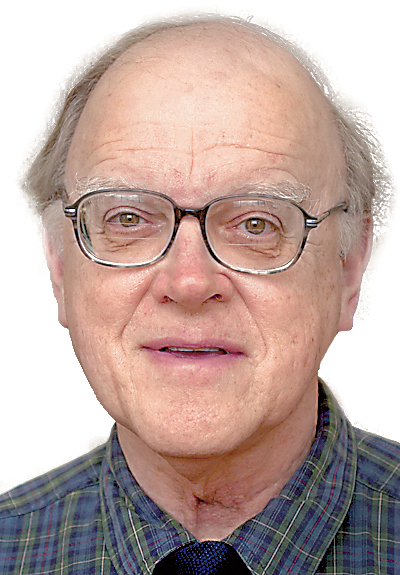We may never know why the California parents of 13 children imprisoned them and denied them adequate food and sanitation. Several of the children were kept in shackles. Had a 17-year-old daughter not escaped and alerted authorities, the children would still be trapped in a hell of their parents' making. Physical and mental trauma sustained by the children may never heal.
How could this happen? Perhaps both parents are sociopaths. They may have subscribed to the doctrines of some bizarre cult. Possibly, the parents were denied affection during their own childhoods and grew into twisted, cruel adults. Authorities have jailed the parents with bonds set so high that they are likely to remain in custody for the rest of their lives.
While this tragedy and other atrocities against children dominate headlines, I think of remarkable examples of parental and familial love that I witnessed during my years in medical practice.
A widow in her 40s realized that she was losing a battle against breast cancer. Excessive radiation - chemotherapy was in its infancy back then - had severely damaged the skin of her chest wall and the underlying lung. The malignancy had spread widely. She had no close kinsmen who could serve as the logical guardians for her young son. She carefully made arrangements for a couple she admired to raise her boy. To ease the transition to his new home, she organized her own admission to a nursing home where she spent her final months of life. Her son visited her regularly. She hid from him her wounds and her pain. She bade him goodbye shortly before dying.
Because of a series of misfortunes and tragedies, a retired couple in their 70s became guardians for their 8-year-old great-grandson. They saw this as a blessing and assumed all the active roles that parents usually undertake. After her husband's death, the great-grandmother's chief concern was that she would have the strength to guide her boy through high school graduation. She succeeded, as did he.
Before ultrasound and prenatal diagnosis became routine, a couple learned at the birth of their daughter - their first child - that she had spina bifida, a congenital disorder that would paralyze her from the waist down and cause other complex problems. Placement in a special facility for crippled children was suggested. Her parents had other ideas. They devoted themselves to providing a normal upbringing for their beloved child in their home. Though wheelchair-bound, she considered herself a normal, active person. She attended elementary, middle and high school with her peers. In high school, her "team" of boys would carry her up and down stairs as classes changed. As an adult, she worked for years in communications for a law enforcement agency. She died at age 50, always thinking of herself as an "abled" person.
A couple anticipated retirement when they could relax and take long-postponed trips. Instead, they found themselves as legal guardians of two young grandchildren. One of the grandparents continued to work, while her spouse became the transporter and school-day parent for the active children. Love displaced any disappointment that they might have felt in their changed responsibilities.
Every day, countless acts of kindness are directed toward children by parents, teachers, social workers, volunteers, neighbors, coaches and counselors. Sacrifices for the well-being of children and grandchildren are commonplace. These are the norms for our species.
Gentleness seldom makes headlines.
As a society we must work to understand violence, particularly when it is directed toward children. If, and when, we arrive at answers, we are obligated to address the causes. In the meantime, no opportunity to aid or comfort a child should be ignored.
Clif Cleaveland, M.D., is a retired internist and former president of the American College of Physicians. Email him at ccleaveland@timesfreepress.com.

